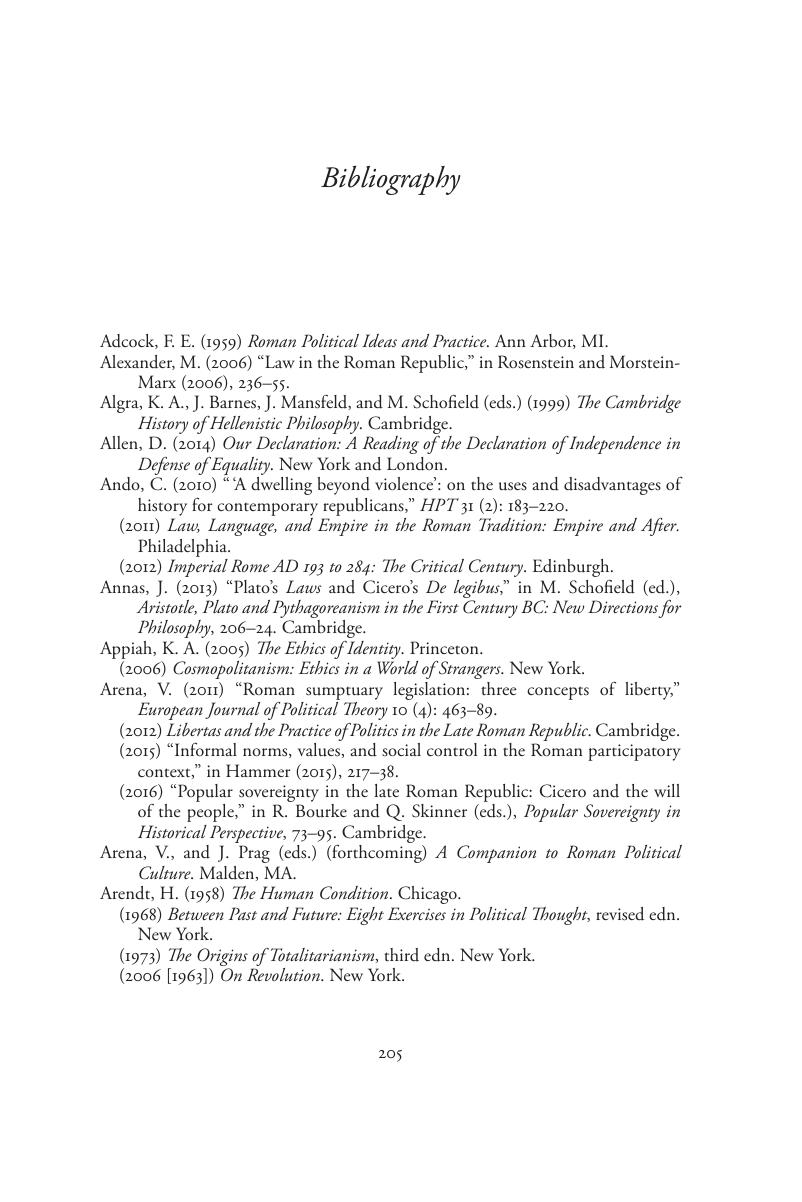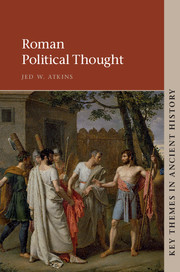Book contents
- Roman Political Thought
- Key Themes in Ancient History
- Roman Political Thought
- Copyright page
- Contents
- Preface
- Timeline
- Texts, Translations, and Abbreviations
- Introduction
- Chapter 1 The Roman Constitution in Theory and Practice
- Chapter 2 Liberty and Related Concepts
- Chapter 3 Citizenship and Civic Virtue
- Chapter 4 Political Passions and Civic Corruption
- Chapter 5 Rhetoric, Deliberation, and Judgment
- Chapter 6 Civil Religion
- Chapter 7 Imperialism, Just War Theory, and Cosmopolitanism
- Conclusion
- Bibliographical Essay
- Bibliography
- Index
- References
Bibliography
Published online by Cambridge University Press: 30 March 2018
- Roman Political Thought
- Key Themes in Ancient History
- Roman Political Thought
- Copyright page
- Contents
- Preface
- Timeline
- Texts, Translations, and Abbreviations
- Introduction
- Chapter 1 The Roman Constitution in Theory and Practice
- Chapter 2 Liberty and Related Concepts
- Chapter 3 Citizenship and Civic Virtue
- Chapter 4 Political Passions and Civic Corruption
- Chapter 5 Rhetoric, Deliberation, and Judgment
- Chapter 6 Civil Religion
- Chapter 7 Imperialism, Just War Theory, and Cosmopolitanism
- Conclusion
- Bibliographical Essay
- Bibliography
- Index
- References
Summary

- Type
- Chapter
- Information
- Roman Political Thought , pp. 205 - 225Publisher: Cambridge University PressPrint publication year: 2018

